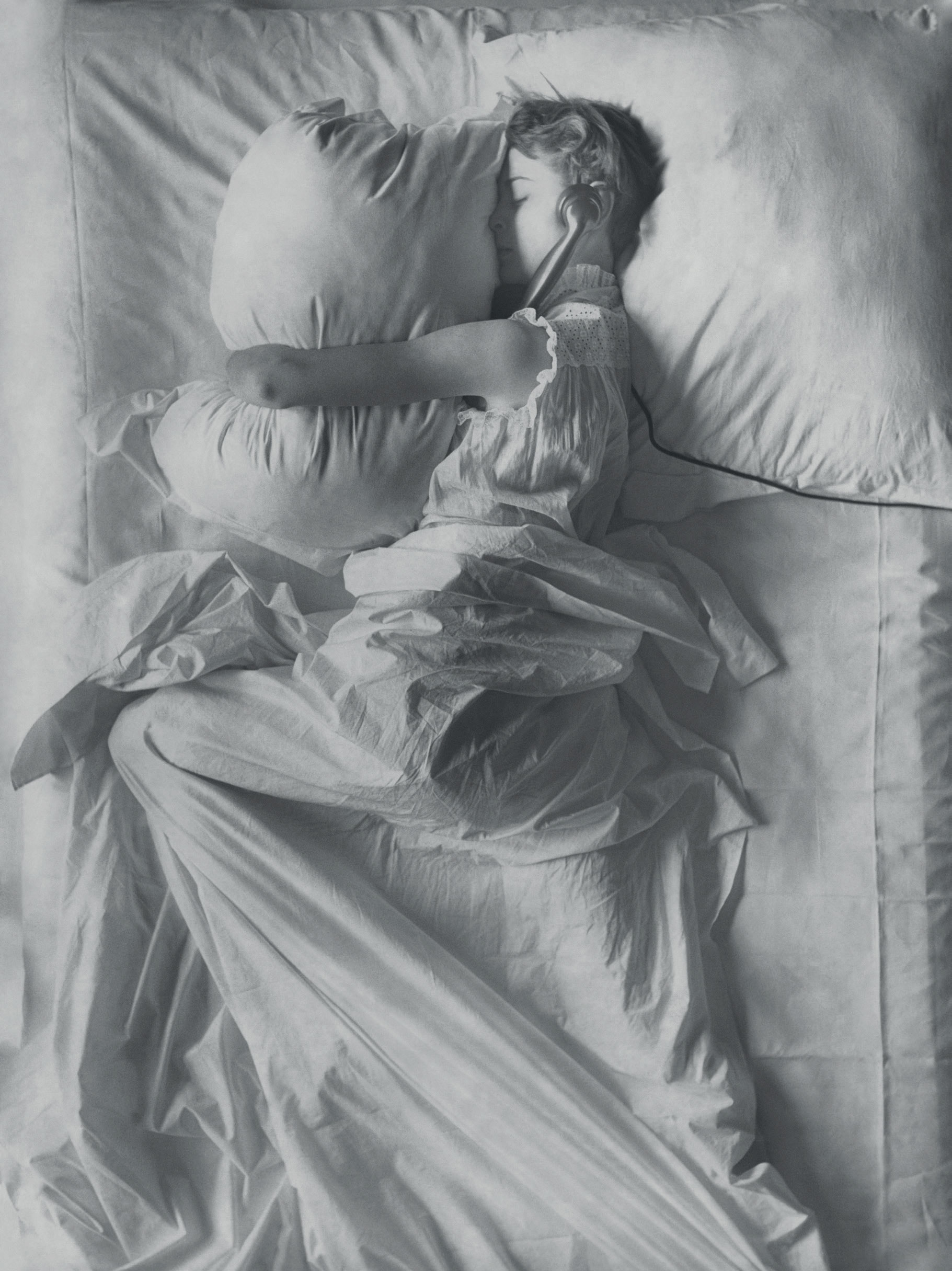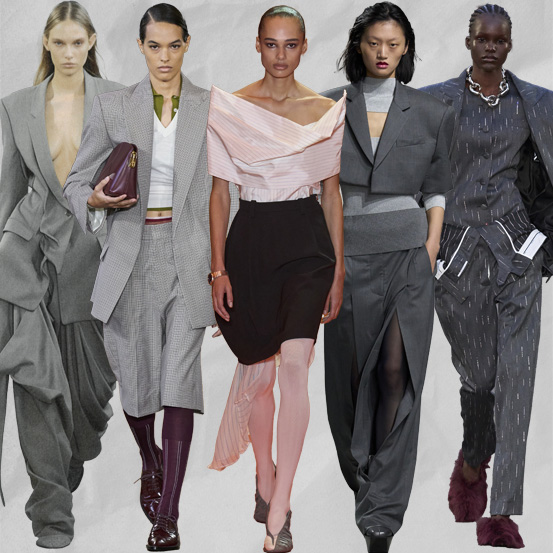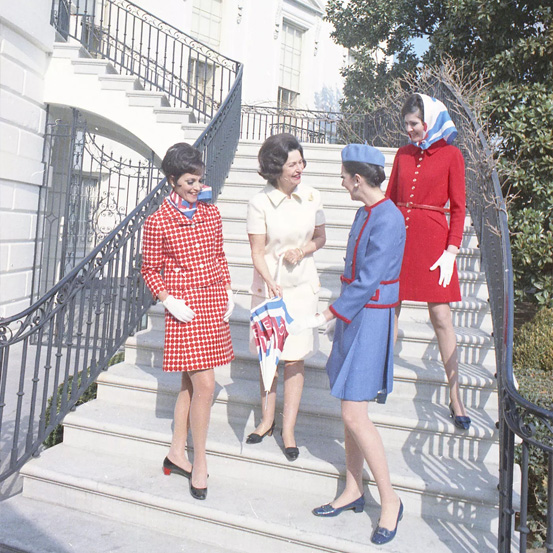Moving around in bed, taking hours to fall asleep and waking up in the middle of the night. Sweet dreams aren’t made of this.
Moving around in bed, taking hours to fall asleep and waking up in the middle of the night. "Sweet dreams aren’t made of this". Photography by Irving Penn.

You stayed up watching another episode of that amazing new TV show, and went to bed later than you were expecting. Lied down, not before doing a quick scroll on Instagram, to see if you had notifications in Messenger or any unanswered messages on WhatsApp. Well, since you had your phone in your hand, why not see if you received an important email (who cares if it’s two in the morning?). You put the alarm clock, on your smartphone, of course, but despite waking up with it, that doesn’t stop you from hitting the snooze button at least three times, for a few more minutes in bed. You drink five coffees a day, the environment at work is a small bubble of stress and... You can't sleep. If only we could guess why.
Rebecca Robins is what can be called a true sleep specialist. The American researcher has been studying the impact of sleep on health for more than ten years. “One of the main myths is to believe that people can 'get by' with less than seven hours. This is the biggest myth”, she tells Vogue. "Usually, this is not the person we know directly, our mother or sister, it’s someone more distant, like 'this guy can only sleep four hours and he’s fine'. But it is a myth, and unfortunately, if that person says he only sleeps during those hours, it is very likely that he is taking a nap during the afternoon. Because it is not physiologically possible. Truth be told, there are notable exceptions, but the proportion of these individuals who sleep only five hours and who are healthy, and in good shape, does not reach 1% of the population”, she says. Is the Portuguese President who, in all biographies and profiles, is given a night's sleep of no more than four to five hours, part of that 1%?
What we need for a good night's sleep is actually much more than that. The ideal is between seven to eight hours, and consistently. To run away from these values is to put health at risk. "We have extensive evidence that sleeping five hours or less consistently increases the risk of adverse health conditions, such as cardiovascular diseases and even longevity," says the researcher. Only, as in many other things, quantity does not necessarily mean quality. And in the case of sleep, quality is crucial for real rest. “Another myth is that sleep is a passive process, that we go to bed, we are lying down, we sleep and we wake up. But sleep is actually a process with patterns, different stages, at the beginning of the night we have the lightest sleep, then there is deep sleep, which is great for our cognitive ability, and has this wonderful rhythm”, describes Robins. But to reach this state (called REM sleep, from “rapid eye movement”, because they move and brain activity is superior) there are no shortcuts, you have to follow a sequence of phases, creating the right environment to get there. "Someone with a healthy sleep can go through all these stages and wake up naturally", says the researcher, guaranteeing that falling asleep immediately is not necessarily a good sign. “If we deprive ourselves of food, then we hoard a plate of food madly. Is this a sign of healthy eating? Or is it a sign of too much hunger? Therefore, healthy people take about 15 minutes to fall asleep. It is a process. Falling asleep immediately can be a sign that you are not getting enough sleep”, Robins explains.
What about that glass of wine after dinner? Maybe it's time to rethink it: “One drink is ok, two is not good. It will directly influence the quality of sleep (…) It may even help you fall asleep, but it dramatically reduces the quality of sleep and rest, it removes us from the deepest states of sleep and may even force us to wake up, and not feel tired”.
The use of technology is, for the American researcher, one of the great problems that may be conditioning the sleep of so many people. “90% of the population says they use their cell phones until they fall asleep”, warns. And whoever says the cell phone says television or other electronic devices. “Watching television is not an efficient way to relax before going to sleep. Especially because, often, what we are seeing in the news or something that can cause us insomnia, or stress, even before going to sleep, when we are trying to slow down and relax. These devices also emit blue light, and that light is what tells our brain to wake up and be alert in the morning. What we want is to avoid that light, from the television or our smartphone, and do things that relax us”. Before going to sleep, Rebecca suggests “taking a shower, reading a book, lighting a candle. Besides, the candlelight is what you want when you go to sleep. We want something cosy. The light of a candle is a soft colour, an orange or reddish. It's soothing. You won't want yellows or blues, these are warning lights. This tells your body that it's time to wake up. And you are likely to have difficulty falling asleep”. The solution can then be “to create a relaxing routine before going to sleep, choose products that we like and that help us turn off, that have aromas that are soothing, like lavender or sandalwood. These are strategies that can help us disconnect from the intense day and claim the night for us. Because we need it. To rest and recharge batteries for the next day”.
Shortcuts for good sleep
They don’t call it “beauty sleep” for no reason. Not only does a good night’s sleep do wonders for our skin, as the beauty industry itself has also done a lot for our sleep. The brand This Works became popular with its products to spray on the pillow before going to sleep. Deep Sleep Pillow Spray, one of their bestsellers, is the result of the combination of lavender, chamomile and vetiver, a mix that promises to induce a state of relaxation that helps you fall asleep faster. There are many who cannot do without them. But there are other brands, like L'Occitane, that also have sprays with tranquillizing fragrances to spray in the room, every night, 15 minutes before going to sleep. More recently, Rituals, which already had similar products, launched a line entirely dedicated to sleep. Called Sleep Collection, the range is part of The Ritual of Jing collection, and it’s designed to provide the best possible environment before bedtime. All products have a calming odour, from the massage candle to the practical roll-on serum to apply to the forehead, temples and neck before going to sleep. But the highlight is without a doubt a small pillow filled with flaxseed and lavender seeds to put over your eyes that when heated (you can put it in the microwave for up to 30 seconds), helps in the process of relaxing and, if all goes well, make you fall asleep.
This article was originally published in Vogue Portugal's Freedom issue, from April 2020. Para ler este artigo em português, veja a edição de Liberdade da Vogue Portugal.
Most popular

Tudo o que deve saber sobre a Met Gala de 2024: Tema, anfitriões e muito mais
18 Apr 2024

.png)
Relacionados

Tendências do guarda-roupa das nossas mães e avós que regressam na primavera/verão de 2024
19 Apr 2024

Tudo o que deve saber sobre a Met Gala de 2024: Tema, anfitriões e muito mais
18 Apr 2024



